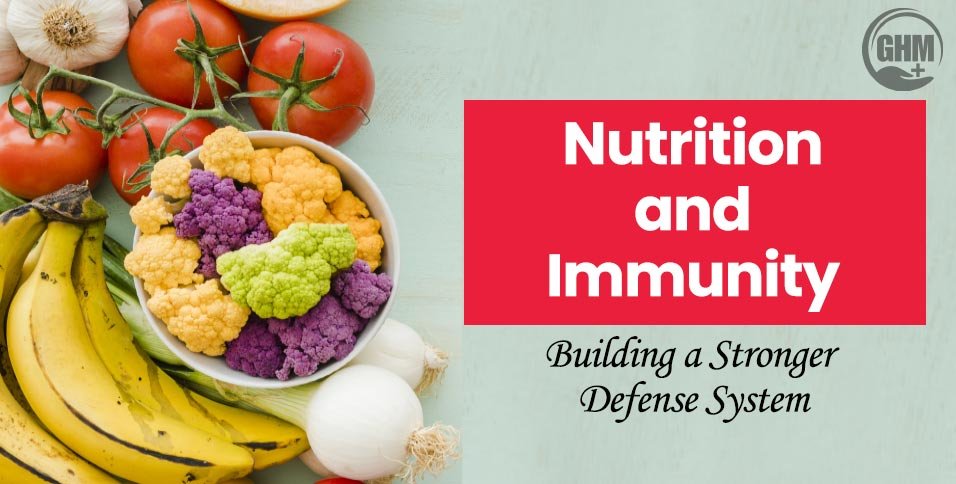In the wake of the ongoing global health challenges, the importance of a robust immune system has never been more evident. The human immune system serves as our body’s natural defense mechanism against pathogens, and its strength largely depends on various factors, with nutrition playing a pivotal role. In this article, we will delve into the critical connection between nutrition and immunity, exploring how a well-balanced diet can help you build a stronger defense system.
1. Key Nutrients for Immune Health
A well-balanced diet rich in essential nutrients is crucial for supporting your immune system. Here are some key nutrients that play a significant role:
a. Vitamin C: This antioxidant vitamin is renowned for its ability to boost immune function. Citrus fruits, strawberries, and bell peppers are excellent sources.
b. Vitamin D: Adequate levels of vitamin D are essential for immune regulation. You can obtain it from fatty fish, fortified dairy products, or sunlight exposure.
c. Zinc: Zinc is vital for the development and function of immune cells. Foods like lean meats, nuts, and legumes are rich in zinc.
d. Probiotics: These beneficial bacteria promote a gut microbiome, which is closely linked to immune function. Yogurt, kefir, and fermented foods are good sources.
2. The Role of a Balanced Diet
A balanced diet provides the necessary nutrients to keep your immune system in optimal condition. Incorporating a variety of fruits, vegetables, whole grains, lean proteins, and healthy fats into your meals ensures that you get a broad spectrum of nutrients that support immune function.
3. The Impact of Inadequate Nutrition
Conversely, a diet lacking in essential nutrients can weaken the immune system, making you more susceptible to infections. Excessive consumption of sugary and highly processed foods can also lead to inflammation, which hampers immune response.
4. Hydration Matters
Staying adequately hydrated is often overlooked but is vital for overall health, including immune function. Water helps transport nutrients and remove waste products, ensuring that your immune cells function optimally.
5. Maintaining a Healthy Weight
Obesity has been linked to a compromised immune system. A balanced diet and regular physical activity are key to maintaining a healthy weight, which, in turn, supports your immune system.
6. Moderation is Key
While certain nutrients are crucial for immune health, it’s important to consume them in moderation. Excessive intake of supplements can have adverse effects and may not provide additional benefits if you are already meeting your daily requirements through your diet.
Conclusion
The relationship between nutrition and immunity is undeniable. A well-balanced diet, rich in essential nutrients, is fundamental to building a stronger defense system against infections. By making informed choices about what you eat and maintaining a healthy lifestyle, you can enhance your immune system’s ability to protect your overall health. Remember, good nutrition is a cornerstone of wellness, and it’s within your control to make positive changes for a stronger immune system.
Also Read: 15 Quotes On Healthy Eating That Will Make You Think Twice About Your Eating Habits













